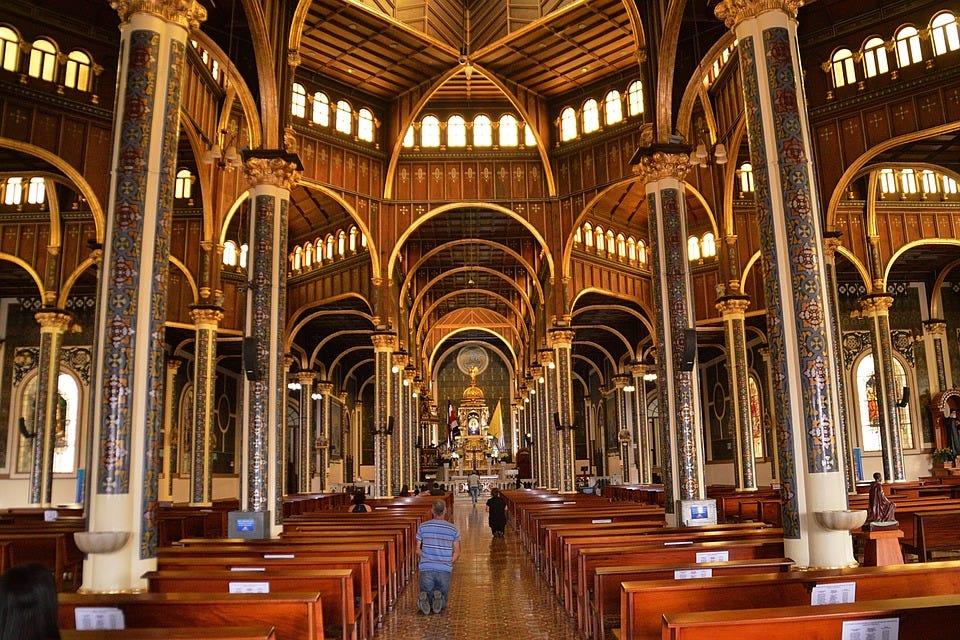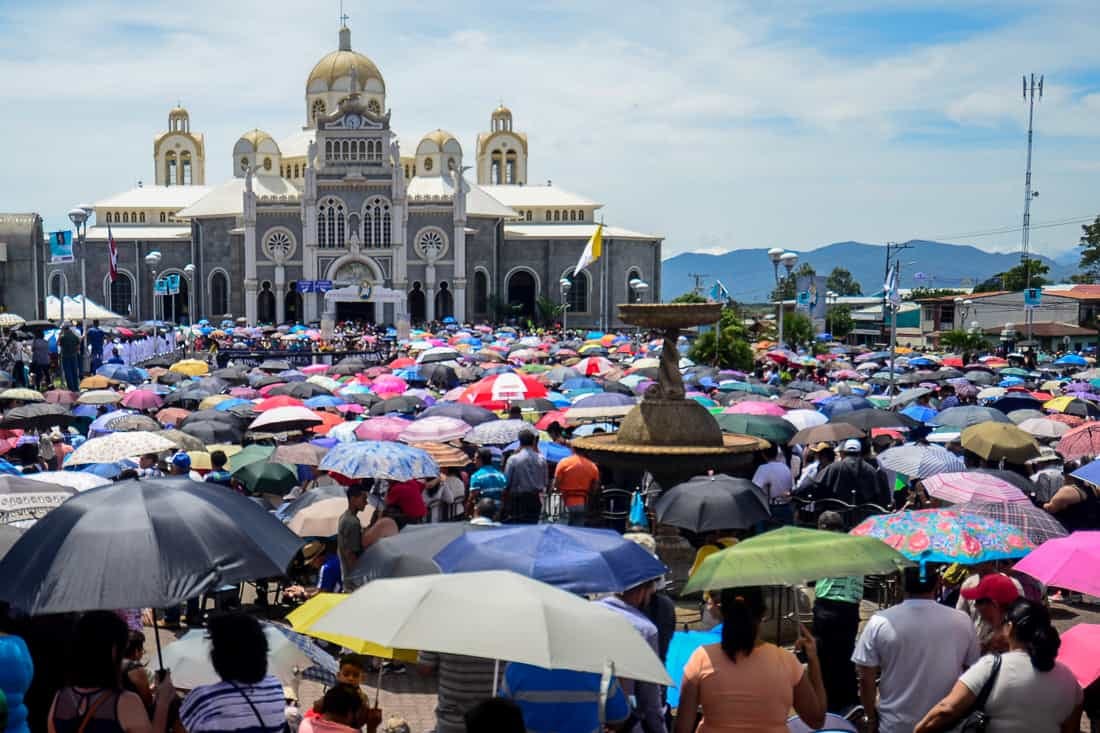Costa Rica celebrates Virgen de los Angeles Day
Today is one of Costa Rica's biggest holidays.
Virgen de los Angeles Day, celebrated in Costa Rica on August 2, honors the country’s patron saint. It’s the right of all laborers to have today off, regardless of their religion.
What is Virgen de los Angeles Day?
On August 2, 1635, a young indigenous girl named Juana Pereira went to collect firewood. She was walking through the brush near a spring when she was surprised by a figure of a woman holding a child in her arms. The figure was on top of a rock, and the young girl brought it back to her house and stored it in a trunk.
The next morning, Juana went out to get wood again, and when she went by the spring, she saw the same figure on the same rock. She took it home to put it with the one she had found the day before. But when she opened the trunk, it was empty.
The same thing happened the next two days.
Then, on the fourth day, Juana brought the figure to the Parish Priest Alonso de Sandoval, who decided to keep it in the church’s sanctuary. When he went to check on it the following day, the figure was gone.
Juana found it near the spring again the following day.
That’s where they built the church — in an area called La Puebla de los Pardos, or as it’s known today, Los Ángeles de Cartago. The legend has endured for hundreds of years, and it’s celebrated on the anniversary of Juana’s first discovery.
This section was adapted from a story in The Tico Times.
How is Virgen de los Angeles Day celebrated?
Costa Rica is a Catholic country, and each year on August 2, hundreds of thousands of faithful Ticos make the pilgrimage to the Basílica de Nuestra Señora de los Ángeles in Cartago.
People come from all across the country (and some from abroad) in an act known as the romería. Able-bodied Catholics will often walk to Cartago — trekking dozens of kilometers, spanning hours or days — and approach the altar on their knees in order to honor the Virgin of los Angeles and ask for her blessings.
This is typically Costa Rica’s largest mass-gathering event, comprising upwards of 2 million people, according to the Catholic Church. Not surprisingly, the Church has asked faithful not to make the romería this year due to the pandemic. Instead, most people will celebrate from home.
Support The Costa Rica Daily
The Costa Rica Daily is 100% free — and 100% ad-free. We can only exist with your support:




